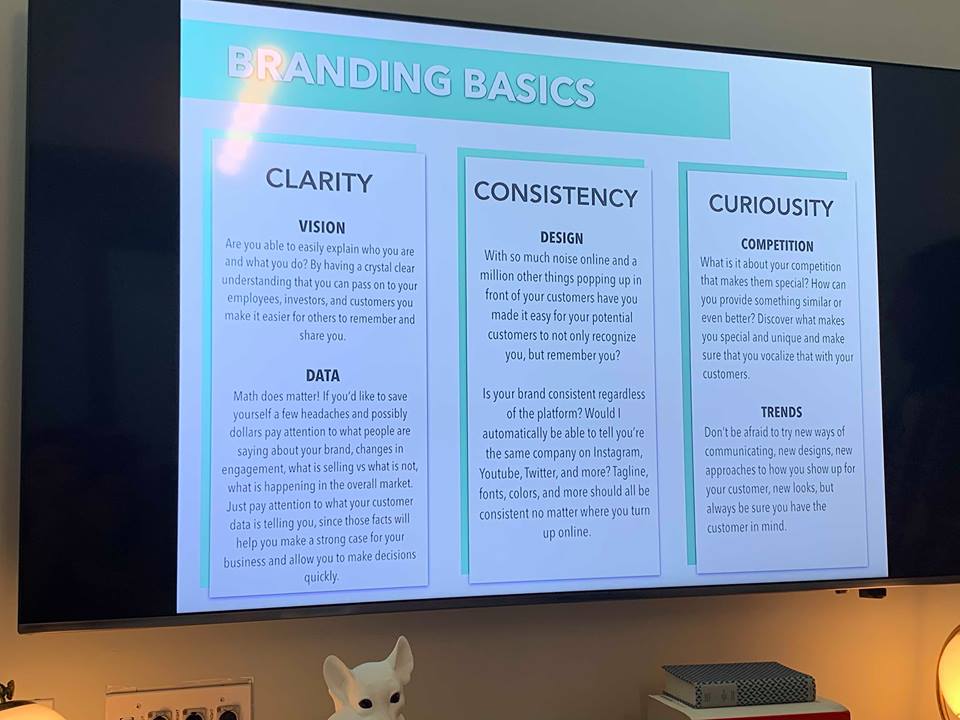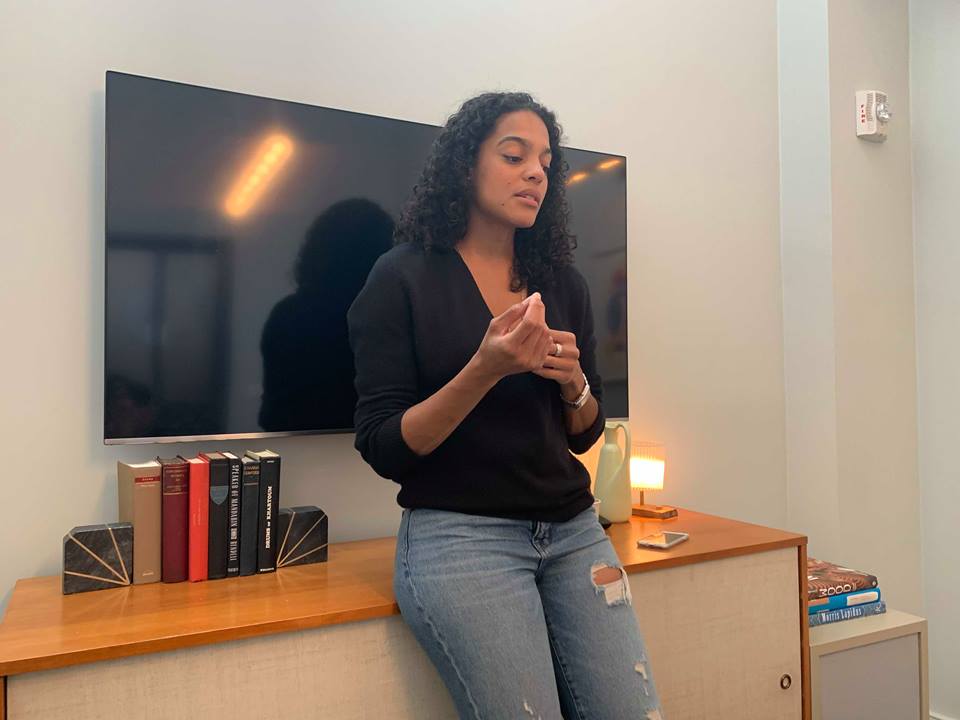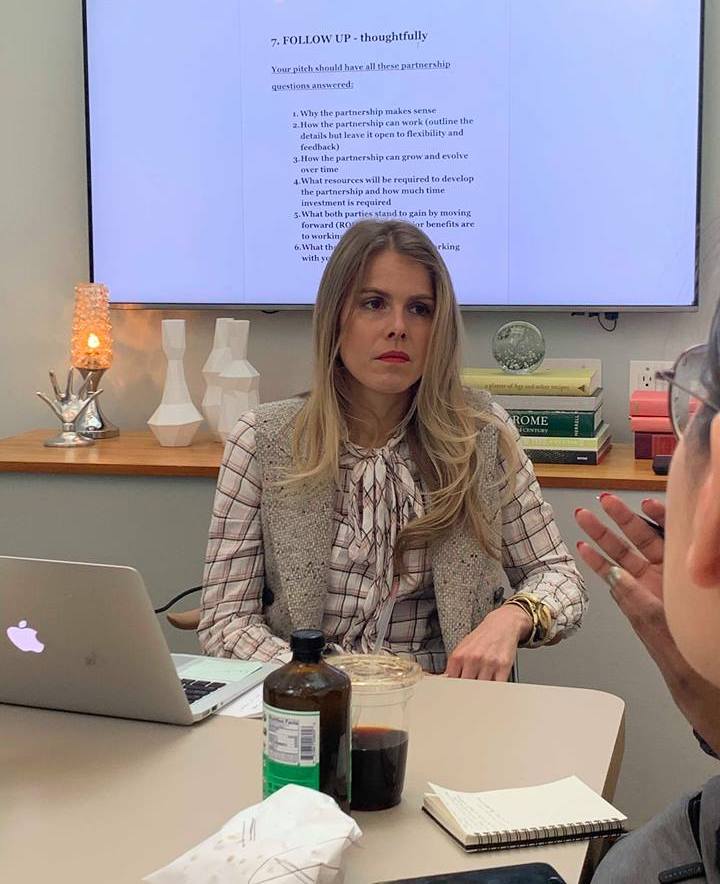I love using the free filter on Eventbrite to find events to go to. Some of my favorite events are clothing swaps, fitness, and pop-ups. I also love learning from others and acquiring new skills. Over the weekend, I attended WAYE’s new event series, WAYE Day: A Career Day for Young Entrepreneurs!
Please note, on the surface this event seemed catered towards entrepreneurship. However, a lot of the key takeaways from this event were also relevant transferable skills that you can use towards job hunting and for communicating to others.
WAYE stands for the Weekly Advice for the Young Entrepreneur. This organization provides current and aspiring entrepreneurs with business tools and education that they will need for success.

Sinead Bovell is a management consultant turned model turned entrepreneur and she is the founder of WAYE. WAYE bridges the gap between millennials and the digital future through events and resources that show the latest innovations in business and technology. These events inspire others to be prepared about the future of work and to create their own sustainable career paths.
Some previous WAYE events include talks about the future of artificial intelligence, dating and relationships in the digital age, and the emerging present of social media and social reality.
WAYE Day: A Career Day for Young Entrepreneurs! was a day of hands-on immersive workshops that was taught by the below women leaders.
Workshop Leaders
- Sinead Bovell: Founder, WAYE
- Nicole Corbett: CEO, WORN NYC
- Marika Frumes: CEO, HER Global
- Navi Ganancial: COO/CXO, FounderMade
- Simmone Taitt: CEO, HeartSpace NY
- Amber Tolliver: Founder/CEO, Liberté
Please see below for the 16 things I learned from this entrepreneurship event.
1. Invest in yourself first.
Acquiring new skills and knowledge are one of the best investments you can make for your business. Look into online courses, conferences, and podcasts to learn as much as you can to improve your business.
2. Be clear about your vision for your business.
Be able to explain who you are, what you do, and have a clear understanding of how you can pass this to your investors, customers, and employees.
3. Be open to different partnerships.
People can discover your brand through social media, articles, and through others. However, please be mindful and use your gut when choosing the people you want to work with.
4. Take time to find the right people for you brand.
Building a team and having funding are both important, but rushing to fill in gaps can be costly and hurt your brand. In addition, it can cause a ripple effect for those who work for you, your product, and your product quality.
5. Understand customer data and how you can use it to make quick decisions.
Be aware about what people are saying about your brand, any changes in engagement, what is selling and what is not, and the overall market.

6. Have brand consistency in any platform you are in.
Stay consistent with your tagline, fonts, and colors wherever your brand is present. Examples of different platforms are your website, Instagram, YouTube, Twitter, and Facebook. Make it easy for your customer to recognize and remember you.
7. Find relevant articles about your industry.
Really learn about what is going on in your industry and where the market stands. You can also reach out to writers who have written topics about your industry, but be clear about what your brand is, and how you can both mutually benefit before reaching out.
8. Know your brand’s value and competition.
Discover what makes your brand special and be able to vocalize that to your customers. Be aware about your competitors and how you can stand out and offer something different.
9. Always have your customer in mind.
There are different ways to reach customers and do not be afraid to test out different methods, layouts, and designs.
10. Take advantage of Shopify and WordPress templates until your have the funding to design and build a custom website.
Having a website can help you establish credibility as a business, and you can start by looking into website templates. Look into hiring a professional once you have enough funding and have a higher brand reputation.

11. Do your homework when reaching out to different brands.
If you want to pursue partnerships, know what your now what your dream brands value and how you can align with their brand values. Be able to answer, why them, why you, and what is the mutual benefit.
12. Find an “in” with the right contacts.
Use your network to find “an in” to the company you are pitching. Most companies have different budgets for both marketing and public relations, which may also be handled by different people. In addition, the best people to reach out to are junior employees and senior management.
13. Keep the initial pitch short and straightforward, but with enough details to pique interest.
Be specific with your ideas and overall vision. Do not begin the pitch with a long recitation about yourself, achievements or your company’s history.
14. Figure out what problem the brand is trying to overcome and position yourself as the answer.
Focus on benefits over features in your marketing materials. Show how the partnership can bring something new, unique, and different, which can mutually benefit both parties.
15. Be genuine, be a giver, build relationships for the long term.
Think of long-term goals instead of transactions. Consider the brand goals and how you can build the relationship with them.
16. Follow up – thoughtfully.
Your pitch should show how the partnership makes sense, how the partnership can grow and evolve over time, what resources are required and how much time investment is required, what both parties gain, and what the brand can lose for not working with you.

